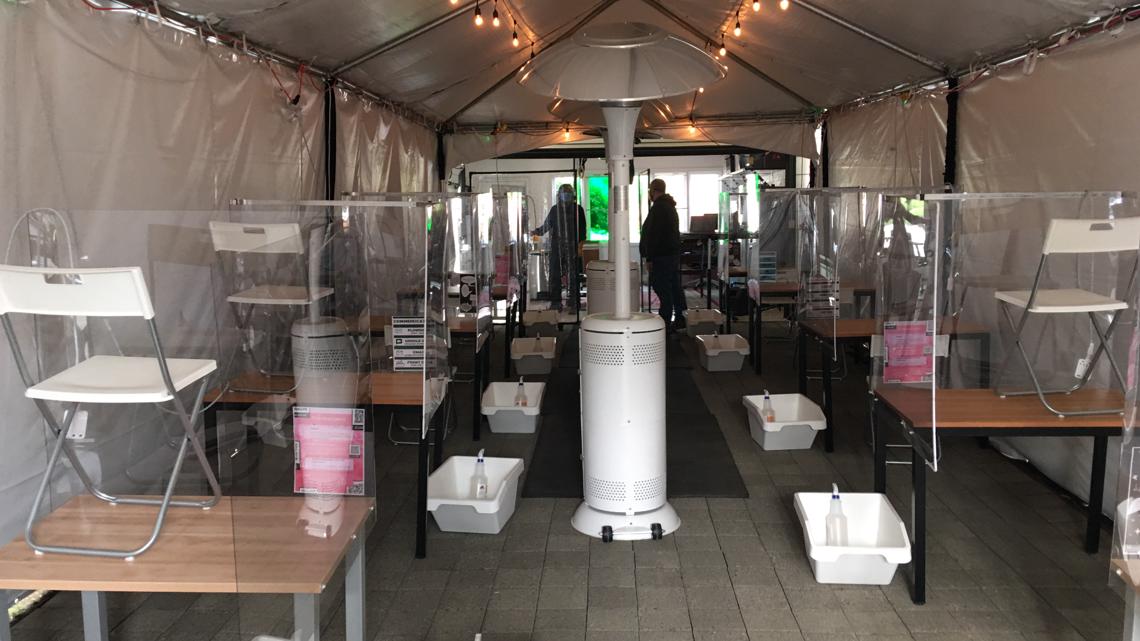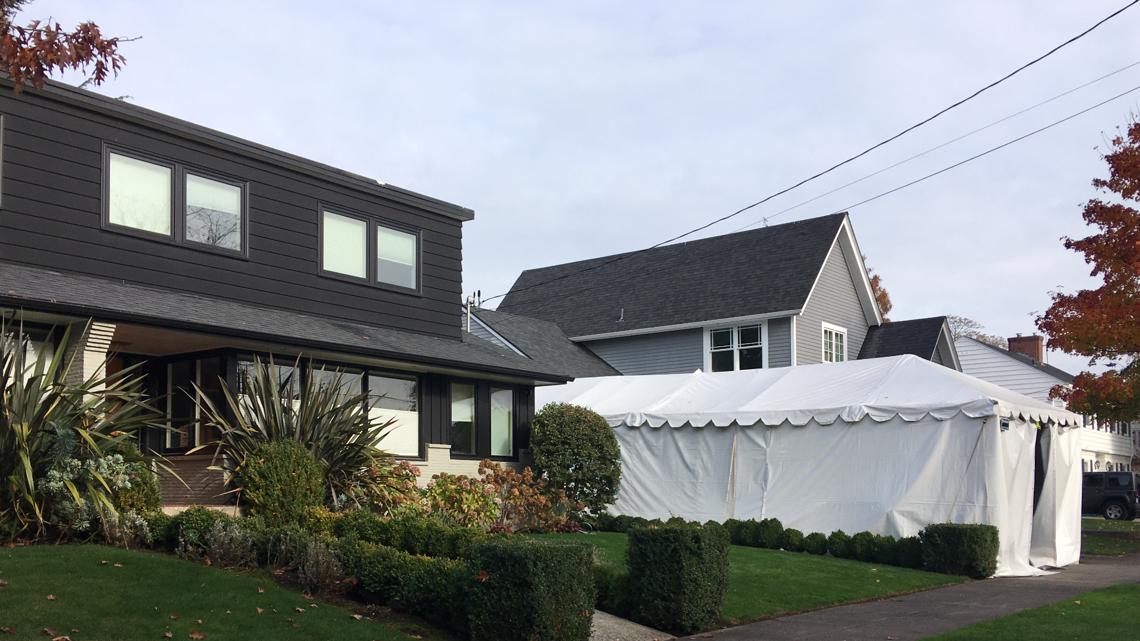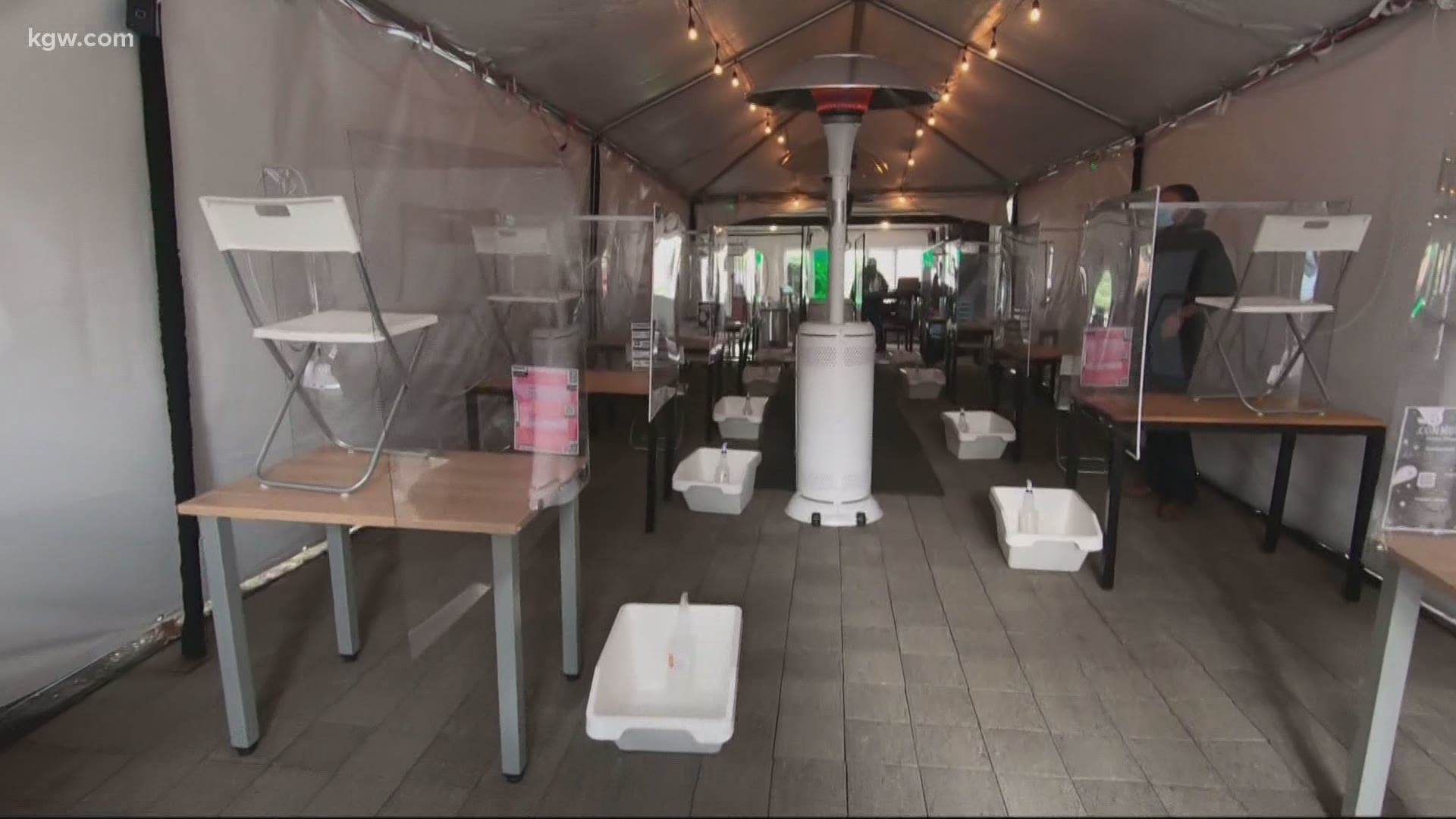PORTLAND, Ore. — In Northeast Portland, whether you’re walking or biking by, a huge tent catches your attention.
If you go inside and you’ll see spaced out desks with protective shields.
“We have propane heaters. We also have sensors to make sure the oxygen is good quality,” said Tim Morita, whose driveway the tent is occupying.
Morita said he and his business partner, Aaron Allison, have done well during the pandemic, so they wanted to give back. Morita stumbled across the concept of effective altruism.
“That’s basically, take the people you love and your local communities, so instead of throwing money out to the ether we decided to invest in our local community,” said Morita.
Their idea turned reality is called Equal Ground School. It’s a dedicated space for neighborhood kids meant to support up to 10 students at one time.


“Because the numbers are going up, they have to keep their masks on at all times,” Morita said.
There are also temperature checks when the students arrive and alcohol to spray down workspaces. It’s a place where kids in 7th-12th grades can come, socialize with their peers in a socially distant way, do their work, and get a little help from a tutor. All of it is free.
Matt Koharchick is the main tutor. He graduated this past spring from Portland State University with a master’s degree in education. Each week he does an academic assessment where the student shows him their grades, then they walk through past and upcoming classwork.
“Even the top students, with all the homework they have, assignments fall through the cracks. It just happens. It happens every week,” said Koharchick.
Morita said what started the project was watching his daughter struggle with distance learning when the pandemic started. In case the pandemic was still an issue, Morita wanted to have a game plan for the fall. So, he researched what people did during the 1918 flu pandemic.
“All the kids were going to school outside. They were in tents. So, this obviously wasn’t an original idea,” Morita said.


The investment is costing Morita and Allison $15,000 dollars a month. But Morita said what’s really making a difference is the academic assessment where students check-in with an adult and remain accountable for their education. He hopes others will pick up on the idea and help kids in their area.
“It doesn’t have to be a big tent like this, doesn’t have to be money, but I think it’s time,” said Morita.
“The biggest thing we can do to help the kids is that assessment once a week and it doesn’t even have to be in person.”
Morita said through doing the academic assessment and forcing kids to show an adult their grades, he’s seen students, including his own daughter, achieve better grades. The average GPA among students who go to Equal Ground is 3.65. He said that’s an improvement from where many students started out.
“I think a big part is having those extra sets of eyes to go through everything together,” Koharchick said.
Morita said there are still spots available for any teens who want to come take advantage of the free tent space and/or tutoring.
Students or parents who don’t want to come in person can also schedule a free online academic assessment.
Morita said a student in New York recently inquired about scheduling an academic assessment.

